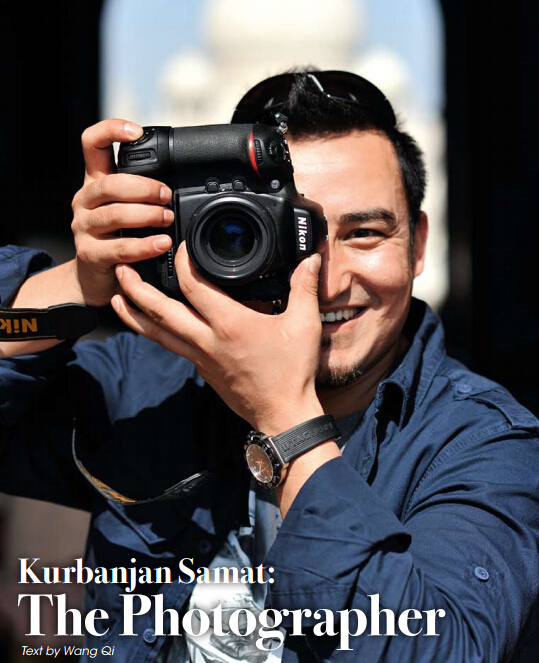Voices from Xinjiang
- By Kurbanjan Samat
 0 Comment(s)
0 Comment(s) Print
Print E-mail China.org.cn, October 22, 2014
E-mail China.org.cn, October 22, 2014
My name is Kurbanjan Samat, and I am a Uygur from Xinjiang. I'm 32 years old, and have lived in Beijing for eight years. Now I work as a camera operator with China Central Television (CCTV), as well as a freelance photographer.
 |
|
Kurbanjan Samat |
I was born in Hotan, a noted jade producer in Xinjiang. My father has been a jade trader for more than three decades. He told his four children, including me, to learn and see more. I couldn't speak any Mandarin until 1998. When I enrolled at Bozhou Teachers' College, I asked to share a dormitory with students from the Han ethnic group in order to learn more Mandarin.
I've taken a great many photos depicting Xinjiang's natural scenery and traditional culture. I thought the photos were enough to inspire admiration for Xinjiang. In 2013, I visited New York City, where I was impressed by what I saw at some photography exhibitions. In that moment, I realized that photos documenting lives of ordinary people are the most touching.
Recently, terrorist attacks have seen an increase in China. I really hate terrorism regardless of their ethnicity or religious beliefs. I grieve over victims of those attacks and feel sorry for the loss of their families. Why such terrorist attacks happened and how to address them have become issues facing society at large, not just a certain group of people.
Over the past couple of years, through reading comments posted on the internet, I've realized that people no longer care about Xinjiang's beautiful landscapes as much as before, but are more interested in what Xinjiang natives are doing and what causes the tension.
My photo series, I'm from Xinjiang, may provide some answers. In it, I documented the everyday lives of people from Xinjiang who now live elsewhere in China. Among them are restaurateurs, jade merchants, white-collar workers, nightclub singers and dancers, lawyers working in the United States, and world-renowned artists and designers. They come from a variety of ethnic groups in Xinjiang. Through conversing with them and hearing their stories about reaching for their dreams, I explored a theme deeper than I expected: The kind heart of humanity transcends boundaries of ethnicity and religion.
A few separatists' mistakes could ruin the image of all Xinjiang natives. The establishment of a positive image requires endeavors to promote mutual understanding. Perhaps the most effective way to remove labels stuck on people of Xinjiang heritage is sharing stories of hardworking Xinjiang natives like me.





Go to Forum >>0 Comment(s)